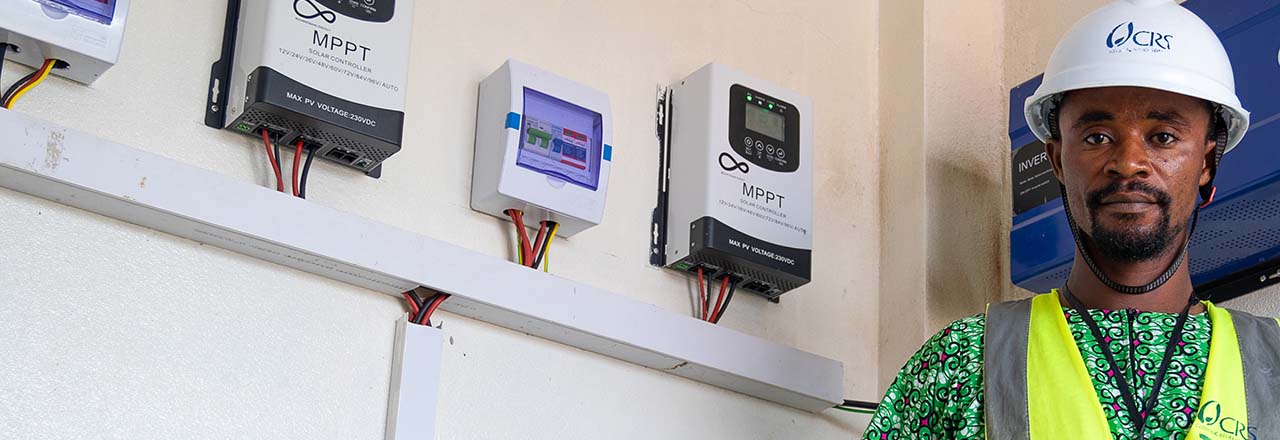

Clean Water for Liberian Communities
Access to clean drinking water has been a challenge in Bensville, a small community of some 2,500 inhabitants, in Kakata, Liberia.
The community had a well, but it was shallow and often dried up during the dry season. So residents had to walk long distances just to fetch water that was rarely clean.
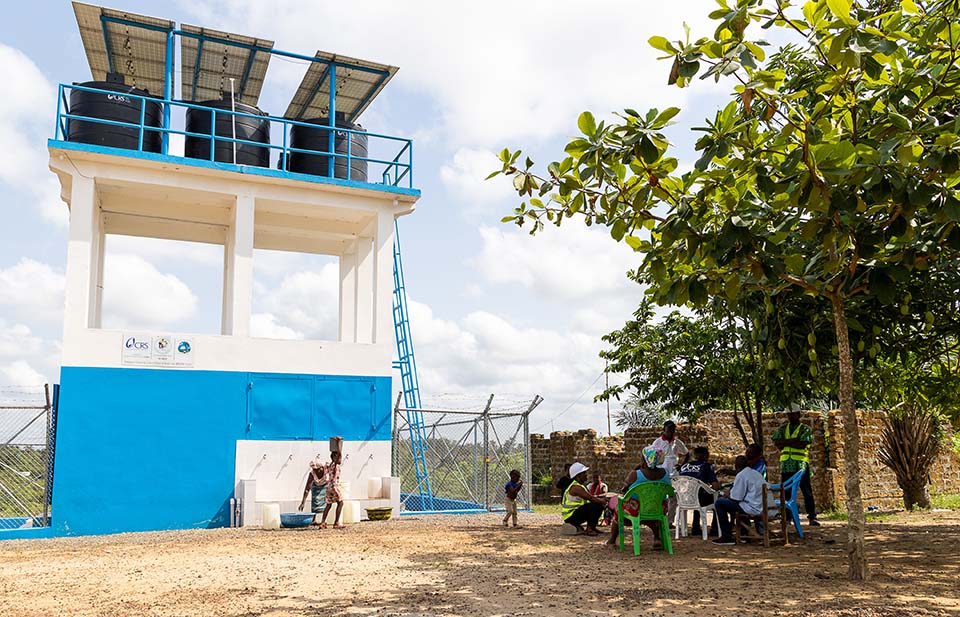
The community management committee holds a regular meeting at the site of one of the water stations in Bensville, Liberia.
Photo by Nde Ndifonka/CRS
So when Catholic Relief Services approached the community to build solar-powered wells in 2022, they saw a golden opportunity.
“We mobilized old and young. First, the community offered a piece of land for the project. We all came out to work. We guarded the materials and contributed whatever we could to make sure the project succeeded,” says Joseph Daruma, a community member and chairman of the community’s water facility management committee.
A CRS project, Helping to Elevate the Lives of People in Small cities, or HELPS, constructed and rehabilitated solar-powered water supply facilities in Bensville, supplying clean drinking water all year round.
The project came as a relief for community members like Esther Kolli, a trader and single mother of three. She cares for a large household with 22 extended family members, for whom access to water used to be a huge challenge. It often took over an hour to fetch water from neighboring communities. Now there is a new CRS water station only three minutes away from her house.
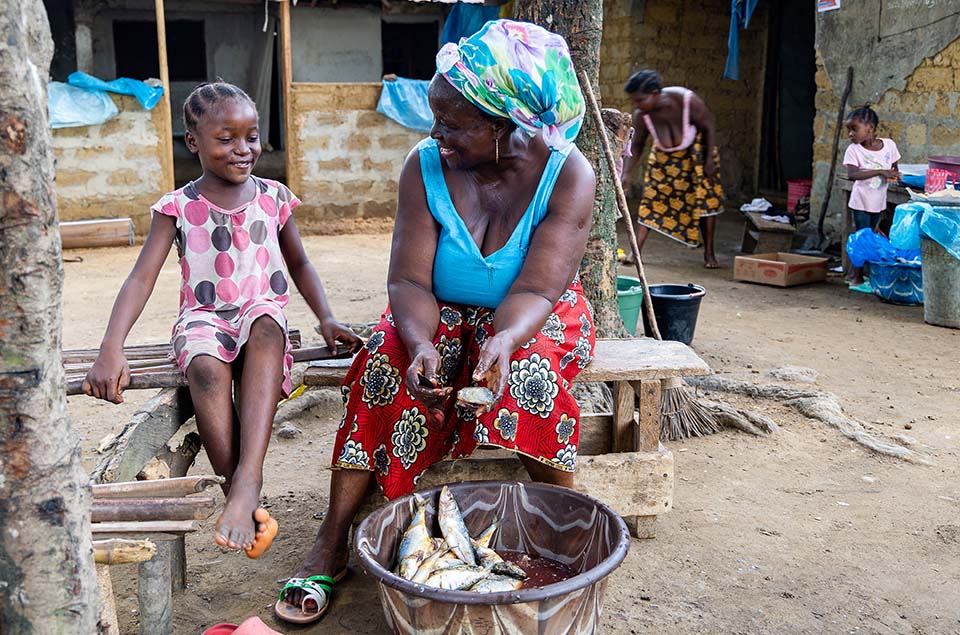
Esther Kolli shares a moment with her daughter, Susanna, while scaling fish using water from her community’s water station.
Photo by Nde Ndifonka/CRS
“I drink and bathe with this water. I use it to cook. I use it to wash my fish before smoking it for sale. I do everything with the water,” Esther tells us, while tending to a bucket of fish with a scaling knife.
Her 9-year-old daughter, Susanna, has just returned from the well with a bucketful of water.
“In the past, Susanna could not fetch water because the water was too far away. Now, she does so daily,” Esther says.
The HELPS program also supports the community by training supervisors who manage the day-to-day running of the well. A seven-member committee of elders, chaired by Joseph Daruma, oversees all the operations and reports to CRS monthly.
Joseph, who worked to mobilize the community to help CRS build the wells, also ensures that the community continues to maintain the new well facilities.
“Now, we work together to make sure that they work properly every day. We need to avoid the situation we had before,” he says. “I am here every day, monitoring the facilities, consulting with the supervisors and making sure that there is no problem.”
Community members contribute a modest sum of about 3 cents per gallon of water. The money funds maintenance of the well.
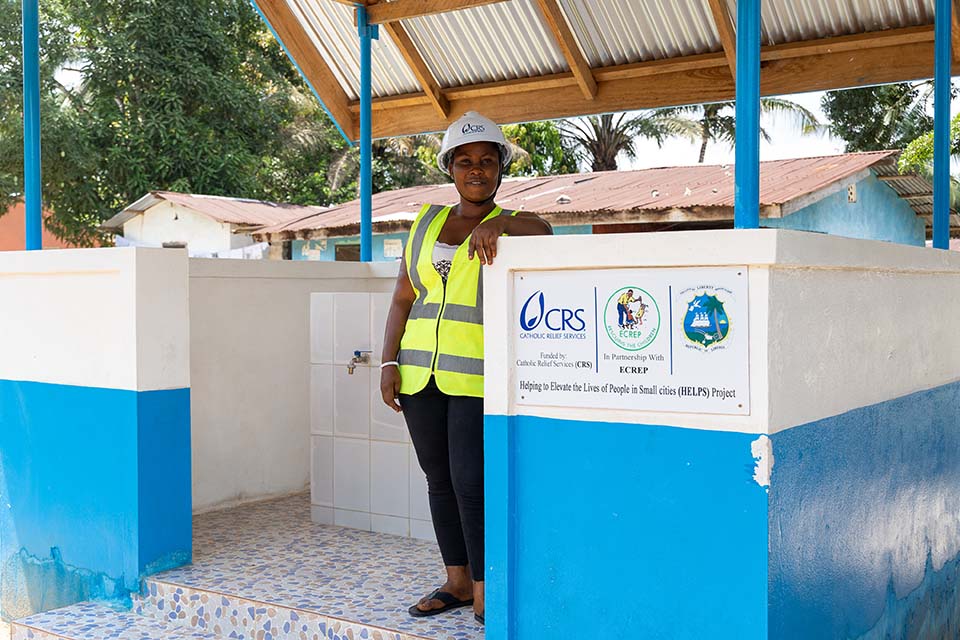
Korpo Tawoo, a supervisor at one of the water supply stations in Bensville, Liberia.
Photo by Nde Ndifonka/CRS
“We do not wait for CRS to fix things. That might mean a rupture in service. With the little money we collect, we have been able to replace a broken pump, a controller and light bulbs, among other things. We prepare a monthly report, which is studied by the committee,” says Cephus Freeman, one of the supervisors of the facility.
“We are here in the morning and we close in the evening. But sometimes they call us for emergencies when it is late,” adds Korpo Tarwoo, his colleague.
“I manage the collections, and the committee studies the financial reports every month before we forward [the reports] to CRS. We have a challenge with one water point which is not working for now, but CRS will fix it soon. Otherwise, so far, the results are good. We can only hope that CRS expands this project to cover other communities,” Joseph says.
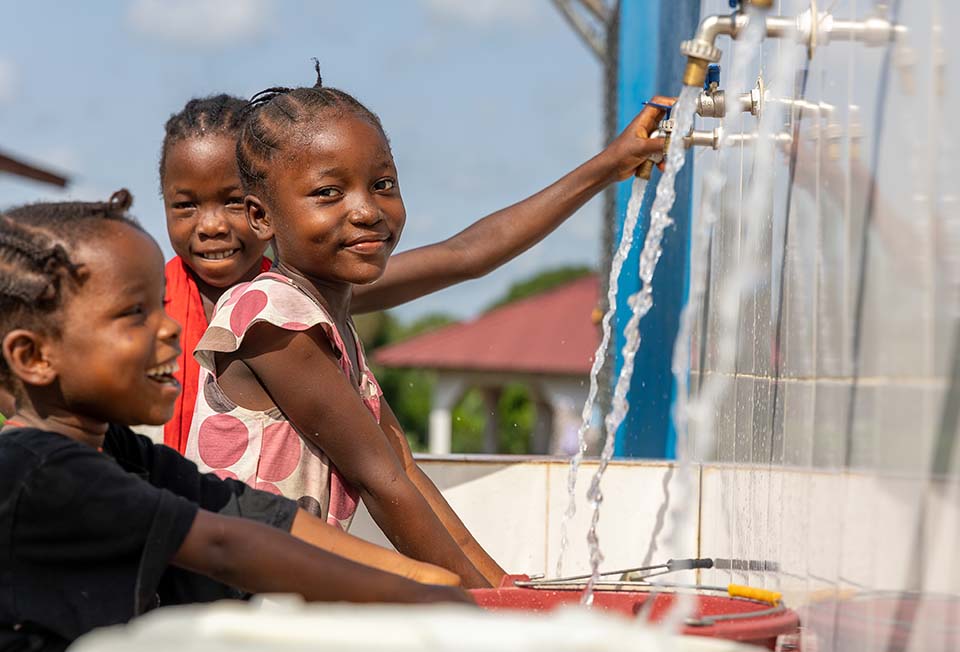
Susanna fetches water for the family from a well station only three minutes away from her home.
Photo by Nde Ndifonka/CRS
The HELPS project aims to provide safe drinking water to at least 10,000 people in Margibi and Montserrado counties by rehabilitating and building stand-alone water supply facilities. It is undertaken in partnership with CRS’ local implementing partner, Evangelical Children Rehabilitation Program, along with two government agencies, Liberia Water and Sewer Corporation and the Water, Sanitation and Hygiene commission.

